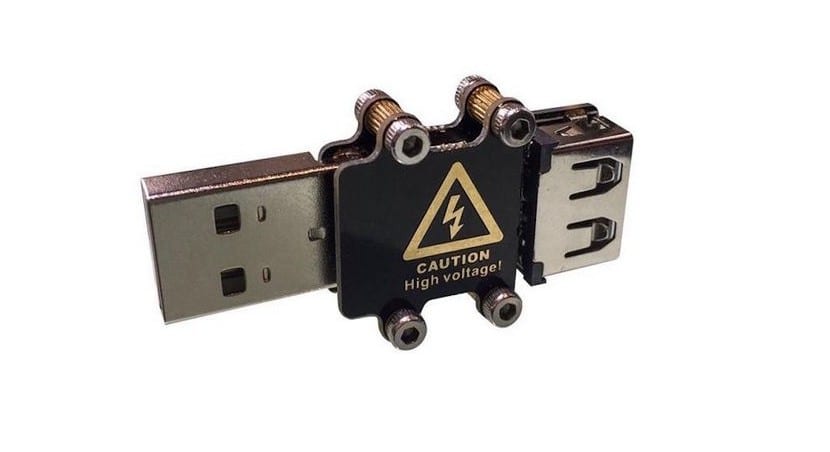
USB ports They are undoubtedly one of the most widely used today, allowing us a good transfer rate to connect peripherals of all kinds or to charge other devices with battery. Be that as it may, all modern computers, even other electronic equipment, already have one or more USB-type ports among their repertoire of connections.
That is why projects to create gadgets for these types of ports have increased, including the most destructive peripherals such as the USB Killer that surely you will have seen news in the network. Basically it is a circuit that destroys equipment in a short time and that is connected by USB. In the hands of some, it can be a good weapon to destroy systems by camouflaging them as a harmless pendrive.
Its operation is simple, a capacitor is charge with -200v of direct current when it is connected and launches said charge against the port making the charge travel through the parts of the equipment where they are connected and destroys it ... In a few seconds the equipment is literally fried by the overload to which the USB Killer subjects it, producing irreparable damage. If you want to know more about this artifact, you will find a lot of information on the net. But here we are going to show other alternatives to destroy that do not need hardware.
On the wonderful platform GitHub You can find source codes of all kinds, a large number of very interesting open projects. Among them is a USBKill script to "destroy" a computer on which it runs. What it actually does is encrypt the content of a hard drive, leaving the computer unusable if the password that it will require to decrypt the information is not entered. In other words, it acts as a ransomware and is activated when activity is detected in a USB port, restarting the computer and asking for said password after restarting ... The scripts are valid for BSD, Linux and MacOS.
interesting!
It doesn't really encrypt your hard drive (which would take a long time), you have to have the data encrypted as it can be read on its github
«» [!] Important: Make sure to use disk encryption for all folders that contain information you want to be private. Otherwise they will get it anyway. Full disk encryption is the easiest and surest option if available »»
Is what I thought, will the MBR encrypt?